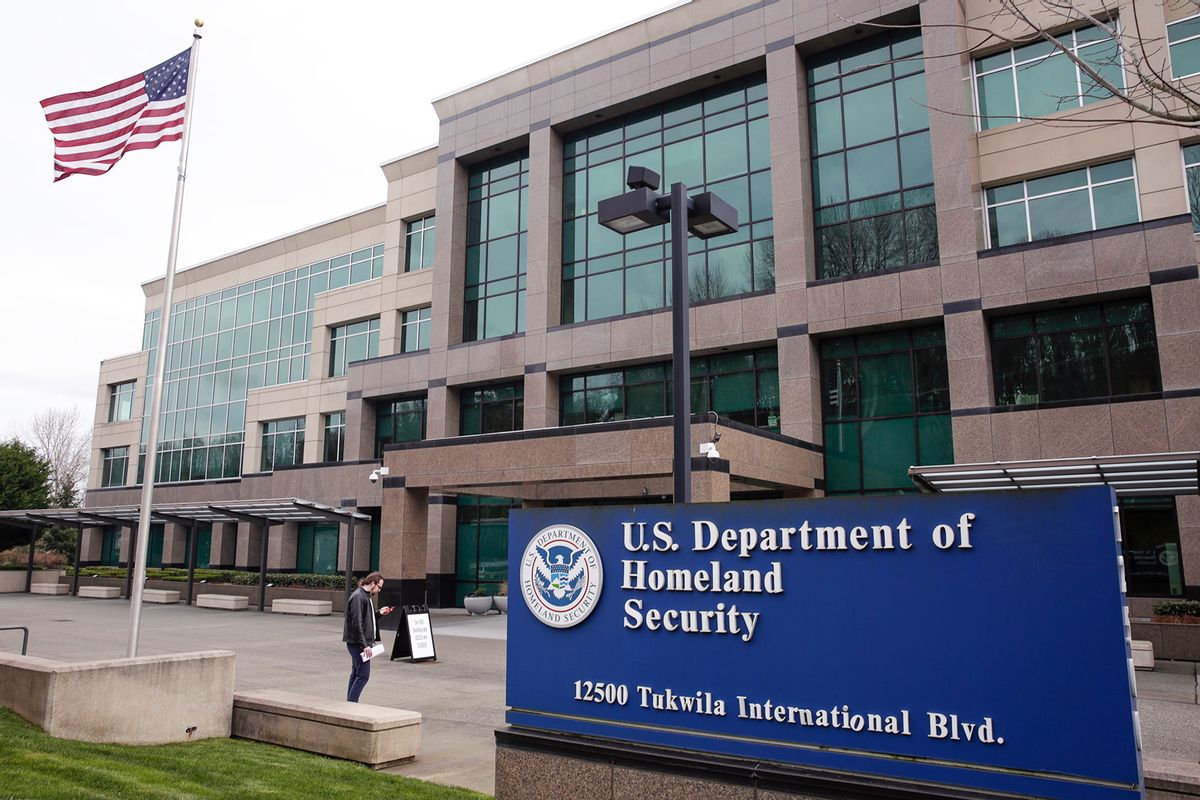“Immoral” spy program: DHS collecting domestic intelligence in “shady” operation

The Department of Homeland Security has been operating a nearly unknown domestic intelligence gathering program for years and employees are concerned that it could be illegal, according to reporting from Politico. As revealed in a trove of documents obtained by the outlet, the Overt Human Intelligence Collection Program is run by the DHS Office of Intelligence and Analysis, and gathers intelligence on transnational drug trafficking and organized crime, drawn from American sources. The program’s employees reportedly fear retaliation if they speak out about what they say are potentially illegal tactics and political pressures.
Among its other elements, OHICP allows officials to interview nearly anyone in the U.S., including those held in detention centers and Customs and Border Patrol facilities, local jails and federal prisons, while bypassing interviewees’ lawyers. According to the program’s documentation, interviewers must explicitly state that they work for DHS, participation is voluntary and an interviewee may end the interview at any time. But the document doesn’t prohibit interviews with people who are awaiting trial, and a law enforcement officer must reportedly be present when these interviews take place. Critically, there’s nothing in the program’s rules that would to stop such an officer from sharing whatever they overhear, whether with their superiors and colleagues, prosecutors or others.
Internal concerns prompted the interviews to pause last year. In a statement, DHS Under Secretary for Intelligence and Analysis Kenneth Wainstein didn’t address OHICP, but told Politico that the department had taken steps since September 2020 to address employee concerns.
“The true measure of a government organization is its ability to persevere through challenging times, openly acknowledge and learn from those challenges, and move forward in service of the American people,” Wainstein said. “The Office of Intelligence and Analysis has done just that over the past few years. … Together, we will ensure that our work is completely free from politicization, that our workforce feels free to raise all views and concerns, and that we continue to deliver the quality, objective intelligence that is so vital to our homeland security partners.”
DHS did not immediately respond to Salon’s request for comment.
Through its Regional Intelligence Office, DHS reportedly works with state, local and private sector partners (although no private companies are named) to collect and analyze intelligence focused on domestic terror attacks, cyber attacks, border security issues and natural disasters. But in an April 2021 internal survey, more than half of the 126 respondents within DHS said they had alerted managers to activity that was inappropriate or illegal in the program.
In a Nov. 12, 2020, email, DHS’ former regional office head, Robin Taylor, summarized employees concerns heard in an earlier listening session.
“Many taskings seem to be law enforcement matters and not for an intelligence organization,” Taylor wrote about the OHICP assignments. “How is any of this related to our Title 50 [statutory] authorities? Even if we are technically allowed to do this, should we? What was the intent of Congress when they created us? ‘Departmental Support’ seems like a loophole that we exploit to conduct questionable activities.”
Want a daily wrap-up of all the news and commentary Salon has to offer? Subscribe to our morning newsletter, Crash Course.
“Showing where we provide value is very challenging,” Taylor wrote, relaying another employee concern she’d heard in the session.
In further listening sessions the following year, with problems still seemingly unresolved, employees reportedly began asking for the Intelligence and Analysis Office to provide field workers with professional liability insurance. An April 2021 document in Politico’s trove quotes one unnamed employee who said DHS leadership in the Intelligence and Analysis Office was “shady” and was run “like a corrupt government.”
Carrie Bachner, who now runs a consulting firm, formerly served as senior legislative adviser to the DHS under secretary for intelligence and was a Capitol Hill liaison from 2006 to 2010. She repeatedly told Congress that DHS’ Intelligence and Analysis office didn’t collect intelligence in the U.S., and told Politico she was concerned about OHICP.
“I don’t know any counsel in their right mind that would sign off on that, and any member of Congress that would say, ‘That’s OK,'” she said. “If these people are out there interviewing folks that still have constitutional privileges, without their lawyer present, that’s immoral.”
Read more
from Rae Hodge on tech and politics


